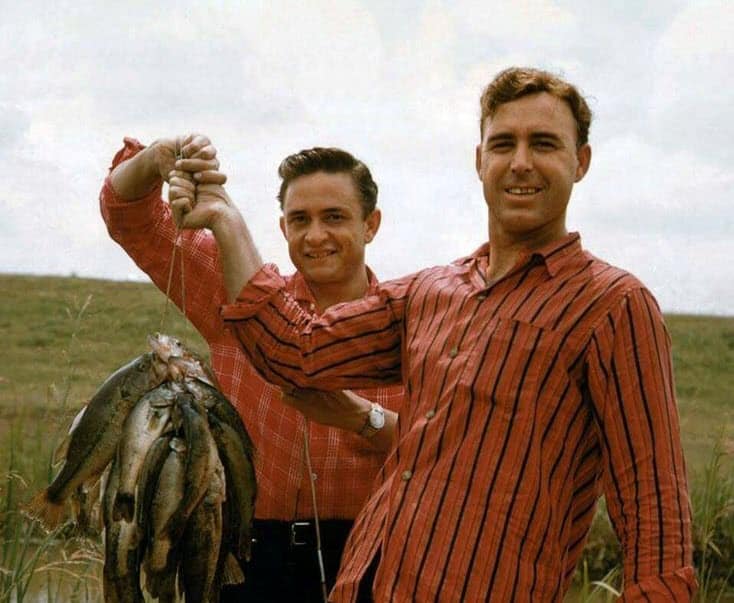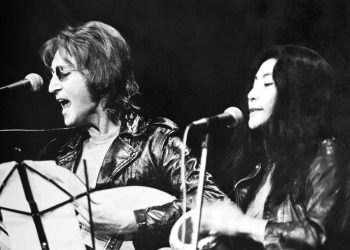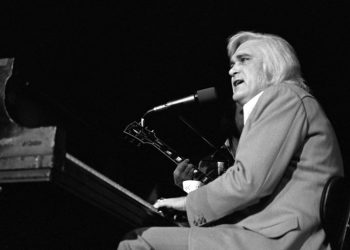Johnny Horton, the legendary country singer known for blending history with heartfelt storytelling, left an indelible mark on the world of music. With his unique voice and vivid lyrics, Horton transported listeners to different times and places, whether it was a battlefield from centuries past or the rugged landscapes of the American frontier. His songs, often laced with adventure, patriotism, and passion, have not only stood the test of time but have also inspired countless generations of music lovers. From chart-topping hits that recount epic historical events to timeless ballads that resonate with the soul, Johnny Horton’s catalog is filled with unforgettable melodies and lyrics that linger long after the music fades. In this article, we’ll take a journey through the Top 10 Most Popular Johnny Horton Songs of All Time, celebrating the tracks that defined his career and solidified his place as one of country music’s most beloved storytellers. Whether you’re a lifelong fan or discovering his music for the first time, these songs showcase the magic of Johnny Horton and why he remains a towering figure in the world of country and folk music. Buckle up—this adventure through Horton’s greatest hits is not one to be missed!
1. The Battle of New Orleans (1959)

Arguably Johnny Horton’s most iconic song, “The Battle of New Orleans” stormed the charts in 1959 and cemented his place in country music history. The song humorously narrates the 1815 battle between American forces and the British, with Horton’s unmistakable voice bringing the historical event to life. Written by Jimmy Driftwood, this rollicking tune quickly became a No. 1 hit on both the country and pop charts, earning Horton a Grammy Award for Best Country & Western Recording. Its infectious chorus, combined with the vivid storytelling, made it a favorite among listeners, allowing it to transcend genres and become a timeless classic.
2. North to Alaska (1960)

Released in 1960, “North to Alaska” was written for the John Wayne film of the same name. This adventurous tune captures the spirit of the Alaska Gold Rush, spinning a tale of fortune-seekers heading north in search of riches. Horton’s booming voice perfectly matches the rugged, exciting theme of the song, making it a hit on both the country and pop charts. Its catchy melody and upbeat tempo make “North to Alaska” one of Horton’s most memorable songs, and a quintessential example of his ability to blend historical themes with mainstream appeal.
3. Sink the Bismarck (1960)

Johnny Horton took on another historical subject with “Sink the Bismarck”, a song that recounts the British Navy’s pursuit of the infamous German battleship during World War II. Released in 1960, this thrilling and patriotic anthem surged in popularity, especially during a time when World War II was still fresh in the minds of many. Horton’s passionate delivery and fast-paced rhythm made the song a hit, reaching the Top 10 on the Billboard Hot 100. “Sink the Bismarck” is a testament to Horton’s knack for turning historical events into captivating musical experiences.
4. When It’s Springtime in Alaska (It’s Forty Below) (1959)

“When It’s Springtime in Alaska (It’s Forty Below)” is a ballad that paints a vivid picture of the harsh yet beautiful Alaskan landscape. Released in 1959, this song tells the tragic tale of a man who falls in love with another man’s wife in a remote Alaskan town. The stark contrast between the romantic lyrics and the freezing temperatures adds a unique twist to the song’s narrative. Horton’s evocative storytelling and melodic voice make this one of his most haunting and beloved tracks, earning him another Top 10 hit on the country charts.
5. Honky-Tonk Man (1956)

Johnny Horton’s “Honky-Tonk Man” was one of his earliest hits, released in 1956. A perfect blend of country and rockabilly, this song tells the story of a man who spends all his money in honky-tonk bars, dancing and drinking his troubles away. It’s a fun, upbeat tune that showcases Horton’s versatility as a performer. “Honky-Tonk Man” became an instant hit and has remained a fan favorite, later covered by several artists, including Dwight Yoakam. It’s a song that captures the carefree, rebellious spirit of the honky-tonk lifestyle.
6. Johnny Reb (1959)

Released in 1959, “Johnny Reb” is a stirring tribute to Confederate soldiers of the American Civil War. While the song’s perspective has occasionally sparked debate, there’s no denying the emotional power of Horton’s delivery. The song’s marching rhythm, combined with Horton’s deep, resonant voice, creates a sense of pride and nostalgia for the soldiers who fought under the Confederate flag. “Johnny Reb” remains one of Horton’s most powerful and evocative songs, continuing to resonate with history buffs and country fans alike.
7. Whispering Pines (1959)

“Whispering Pines” is a beautifully melancholic ballad that showcases Johnny Horton’s softer side. Released in 1959, this song tells the story of a man seeking solace in nature after losing a loved one. The gentle, lilting melody perfectly complements Horton’s emotive vocal performance, drawing listeners into the poignancy of the lyrics. “Whispering Pines” didn’t achieve the chart-topping success of some of his other hits but has nonetheless become a beloved track among fans, celebrated for its heartfelt simplicity and emotional depth.
8. I’m a One-Woman Man (1956)

“I’m a One-Woman Man”, released in 1956, is a lively declaration of loyalty and love. With its upbeat tempo and catchy lyrics, this song shows off Horton’s rockabilly roots while still maintaining his country charm. The song became a hit in the country charts and has since been covered by numerous artists, including George Jones. Its infectious energy and playful lyrics make it an enduring favorite, showcasing Horton’s ability to craft fun, feel-good music that resonates with fans.
9. Comanche (The Brave Horse) (1961)

Released in 1961, “Comanche (The Brave Horse)” tells the true story of the only surviving horse from the Battle of Little Bighorn. This poignant ballad honors the bravery of both the horse and the soldiers who fought in this historic battle. Horton’s reverence for the subject matter shines through in his vocal performance, lending a sense of solemnity to the song. Though not as commercially successful as some of his other hits, “Comanche” remains a powerful example of Horton’s talent for turning historical events into moving musical narratives.
10. All Grown Up (1958)

One of Johnny Horton’s earlier songs, “All Grown Up” was released in 1958 and showcases a more personal, introspective side of the artist. The song reflects on the passage of time and the bittersweet nature of growing up. Horton’s sincere delivery adds emotional weight to the lyrics, making it a relatable and touching track for listeners of all ages. While it didn’t achieve the same commercial success as some of his later songs, “All Grown Up” remains a hidden gem in Horton’s discography, beloved by fans for its heartfelt message.









